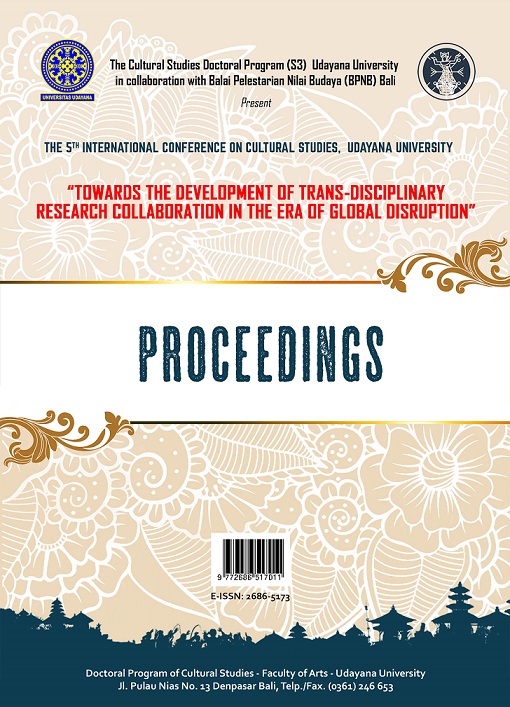CULTURE-BASED ANIMATION: COMMODIFICATION PRACTICES AND CULTURE PRESERVATION
Abstract
Industrial growth in the animation sector triggers the practice of commodification of culture. Culture of a place used as an idea or as an idea in the creation of animation. The practice of cultural commodification in animation produces cultural-based animation products. Culture-based animation was initially only an implementation of cultural preservation. But as its development becomes a commodity product. Some of the world's animations created as a result of the commodification of culture include animated films "Mulan" about Chinese legends, "Kung Fu Panda" about kungfu culture, "Upin Ipin" about Malaysian culture, "Adit and Sopo Jarwo" and "Knight Kriss" about Indonesian culture, and "Si Uma" about Balinese culture. This study aims to analyze the animation that results from the commodification of culture. Data were taken from visual analysis and in-depth interviews. This study uses qualitative methods with interpretive qualitative approaches. The theory used is the theory of commodification from Vincent Mosco. The results of the study show that some animated films that carry cultural themes are used as exchange rates for the benefit of capital. Before becoming a commodity, the animation that elevated culture as an idea of ??creation was limited to the preservation and introduction of culture to the public. As culture-based animation receives positively to the public, it ultimately becomes a product and business area as well as an effort to preserve culture.
Downloads
References
Danesi, Marcel. 2010.Pengantar Memahami Semiotika Media. Yogyakarta: Semiotika Media
Djalle, Zaharudin G.,dkk. 2007. The Making Of 3D Animation Movie. Bandung: Informatika.
Fairclough, N. 1995. Discourseand Sosial Change. Cambridge: PolityPress. Harahap, Machyudin
Kurniasih, N., Abdillah,L. A., Sudarsana,I. K., Yogantara,I., Astawa,I.,Nanuru,R.F., & Duan, E. (2018). PrototypeApplication Hate SpeechDetection Website UsingStringMatchingand SearchingAlgorithm.InternationalJournal of Engineering&Technology, 7(2.5), 62-64.
Piliang, Yasraf Amir. 2003.Hipersemiotika:Tafsir Cultural Studies AtasMatinyaMakna. Yogyakarta: Jalasutra.
Piliang, Yasraf Amir dan JejenJaelani.2018.Teori Budaya Kontemporer:PenjelajahanTanda Dan Makna. Yogyakarta: Aurora.
Prakosa,Gotot,2010,‘Animasi:PengetahuanDasarFilmAnimasiIndonesia’,kerjasama FFTV-IKJdan YayasanSeni VisualIndonesia: Jakarta.





